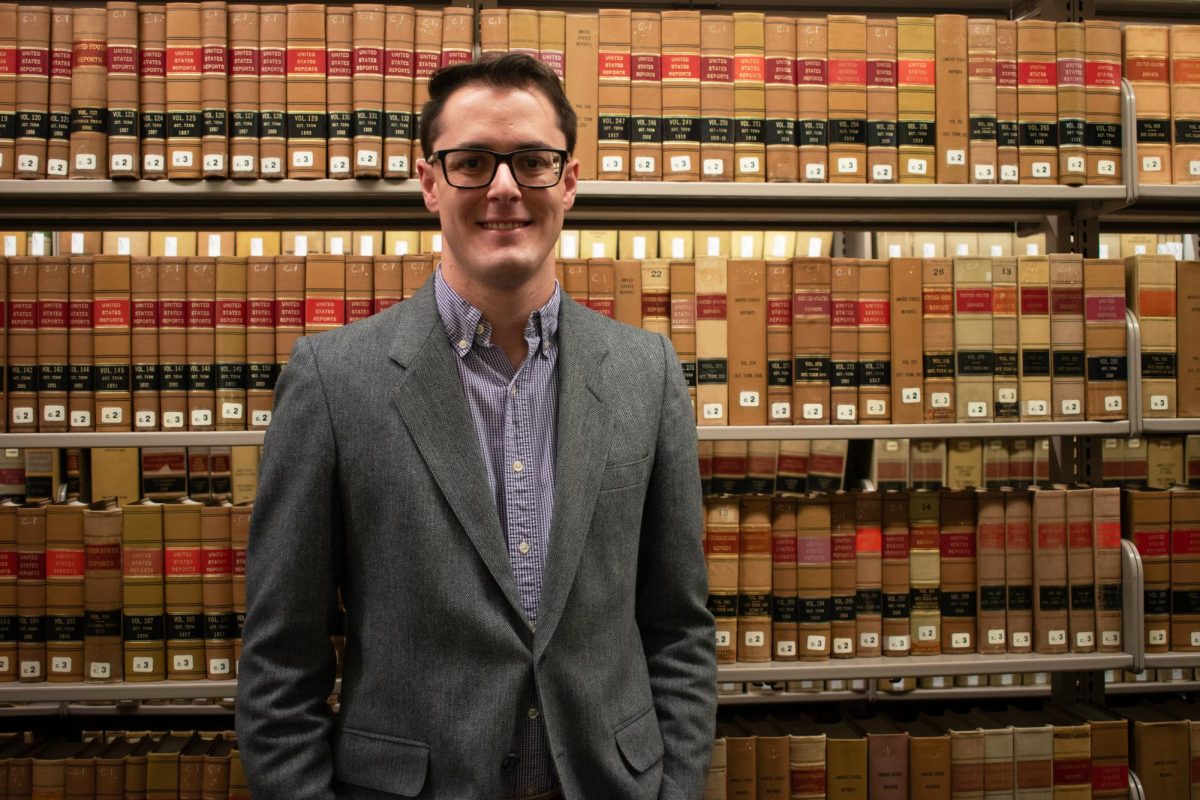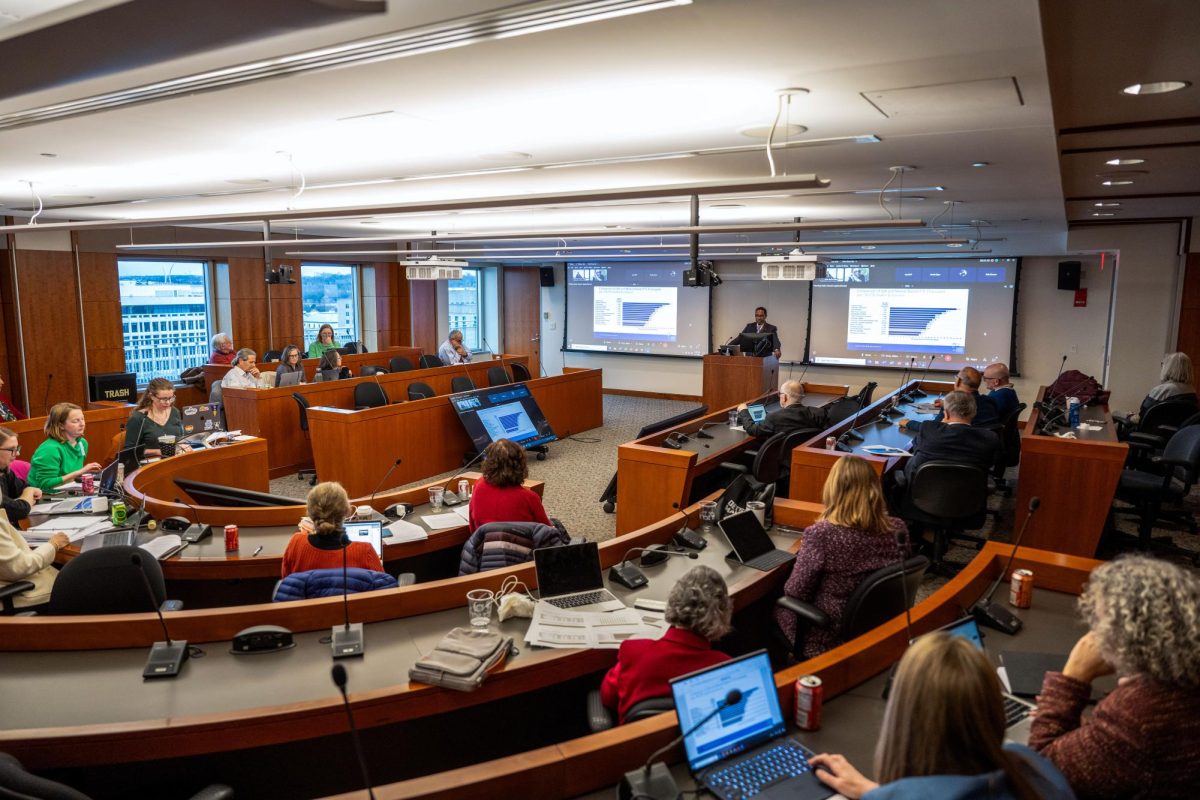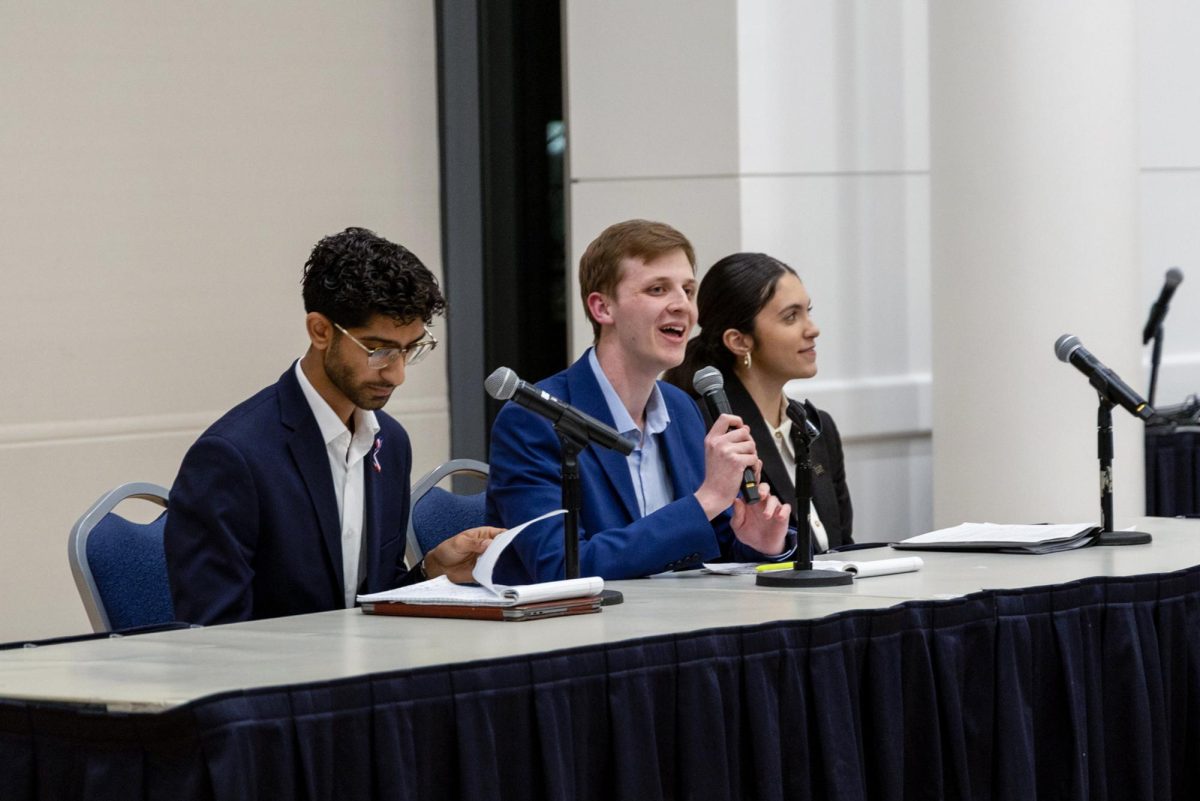GW Law students this semester revived an independent, student-run online news site that reports on all aspects of the law school.
Nota Bene, which the Student Bar Association initially founded as Amicus Curiae in 1952, produces online articles on law school events and academics as well as the SBA. Connor J. Toth, the previous director of student feedback on the executive branch of the SBA and Nota Bene’s current editor in chief, said Nota Bene currently has a staff of about a dozen students who actively contribute to writing, editing and uploading stories to the website, and the paper will host its first general body meeting this week, which is open to all law students.
The paper published regular print editions through the 1950s and 1960s, covering law school events and new hires within the school’s administration, until the publication shut down in 1968 due to SBA budget constraints. In 1969, law students revamped the paper under the name The Advocate before renaming it Nota Bene — a Latin phrase meaning to note well or observe carefully — in 1996. Nota Bene published online up until its shutdown at the start of the COVID-19 pandemic in 2020 because of a lack of activity and leadership.
Toth sponsored an act to bring the publication back to campus and recognize the organization in the SBA in April after a four-year hiatus last semester. He said he wants to introduce a creative writing and photography section into the existing news, opinion and culture sections the website currently has to allow law students to enjoy the writing experience outside of legal writing.
“It can be very draining, and it can sometimes even ruin your ability to write if you don’t go about it the right way,” Toth said. “And so we want to have a forum that we can enable students to have that informal writing, that creative writing style.”
Toth said he wanted to relaunch the publication because law students are “secluded” from the rest of the GW community because of differing academic schedules from the greater University, and publications like The Hatchet don’t always provide information that is relevant to the average law student’s daily life.
He said he wants to cover SBA finances and law school administration decisions, which he said lack transparency.
“There is a disconnect between the University community as a whole and law students, but I think that because we are in that little microcosm, having a specialized publication that caters directly to what law students are worried about is good,” Toth said.
Among the first articles published by the paper this semester was an opinion piece by Shalom Samuels, the chief judge of the SBA’s Supreme Court — the governing body which interprets the SBA constitution and provides legal guidance to the senate — titled “Let’s Cut the Drama: Why the SBA Should Ditch the Three-Branch System.”
In the opinions piece, Samuels said the SBA is “unnecessarily complex” and its executive, legislative and judicial branches complicate the SBA’s main goals of allocating funds to organizations and advocating for the student body.
“Honestly, if we’re the only law school with a Supreme Court and a senate that thinks it’s Congress, maybe that’s a sign we’re taking ourselves just a little too seriously,” Samuels wrote.
Samuels, the deputy editor in chief of Nota Bene, said his roles on the publication and within the SBA act in a “similar” capacity as checks on the SBA government. Samuels said his role on both the SBA and Nota Bene allows him to “mediate” the disputes between the senate and executive branch of the SBA, adding that forms of media, like Nota Bene, act as a “fourth branch of government” to check the power of leaders.
“Being part of two of those, I think, is very helpful,” Samuels said. “So there’s the Supreme Court side, which is just when we’re asked to give our answers according to the bylaws and things like that and then Nota Bene is much more about the policy, about how things should be done.”
SBA Executive Vice President Nigel Walton said he is glad Nota Bene covers the SBA, but it was “wrong” for the opinions piece to be written by a person who holds the position they are criticizing. He said he hopes future articles, in both the news and opinions sections, are written “with truth” by people who are not directly affiliated with the body they are criticizing.
“You can’t write an article about the three branches of government as a problem, and you sit as the chief of the damn Supreme Court,” Walton said.
Toth published a piece in the “SBA News” section titled “Disarray in the SBA,” where he outlined a history of “systemic” executive overspending — something Toth said has gone back “two to three” years in the SBA — and closed with a set of recommendations to amend the SBA bylaws by adding procedures that require the executive branch to submit line-item budget requests to the Senate Finance Committee and report any overspending to the student body.
In the piece, he said the SBA was financially “a disaster” that necessitates “immediate intervention.”
“I want us to maintain a professional tone, make sure that we give people the facts before we give any sort of recommendation,” Toth said. “But if there is a general sentiment among most law students one way or the other, and it makes sense to include a recommendation, I think that we’re not going to be overly cautious about not including it.”
Omer Turkomer, the chair of the SBA Finance Committee, said he appreciated Nota Bene’s coverage of this year’s allocations process for “accountability’s sake.” He said the publication’s coverage of the SBA allocations process will help students keep track of what the SBA Finance Committee is doing and how it allocates money to student organizations.
He said the “opinionated” takes Nota Bene includes in their pieces helps him understand how he can improve the allocations process. He said hearing law students’ take on SBA proceedings from the editorial section and comments below articles from readers are “helpful” because it allows him to implement the student body’s opinions into senate decisions.
“You want them to cover your mistakes or failures because that’s what keeps you accountable,” Turkomer said. “Like throughout the finance process, they were very attentive in covering funds.”





